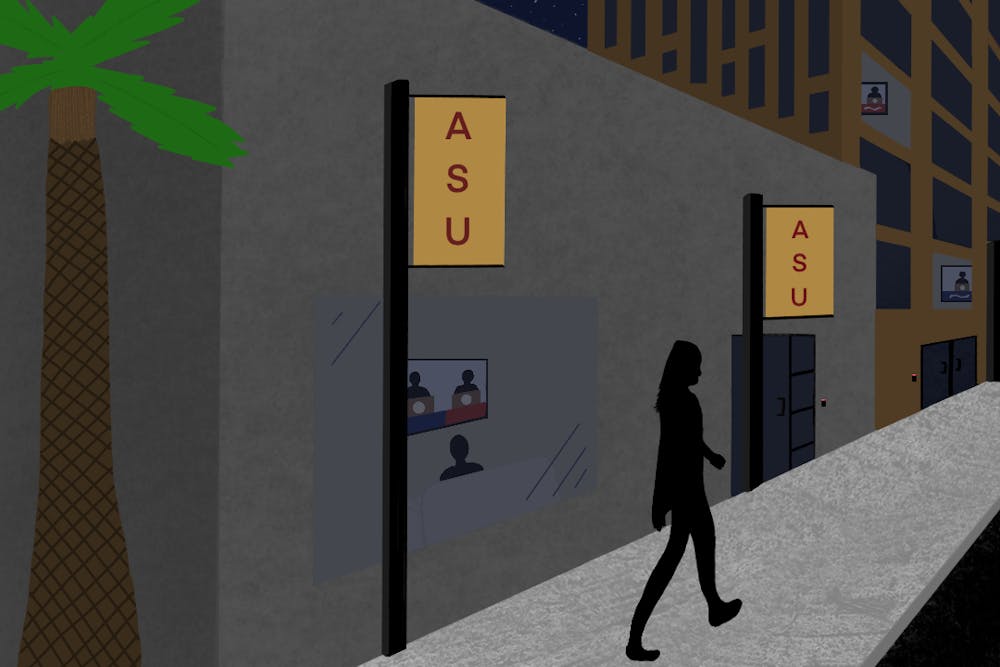This year's election campaigns have been unprecedented. Everything from tax plans and healthcare policies to gun control legislation and education funding that affects a large percentage of Americans are on the ballot this year. More than that, people's rights, safety and livelihoods are on the line.
However, social media's role as a news source has given way for misinformation to spread rapidly, according to U.S. PIRG Education Fund. This development has caused a lack of voter education, specifically on crucial policies which prevents voters from making an informed choice at the polls.
Massachusetts Institute of Technology researchers discovered that on social media, the top 1% of widely spread Tweets reached between 1,000 and 100,000 people, according to Science Magazine. While true information normally reaches under 1,000 people, according to the study.
In 2022, NewsGuard conducted a study for searches containing important news on TikTok. The study concluded that "almost 20% of the videos presented as search results contained misinformation."
Along with misinformation, high levels of party polarization have caused an extreme divide in public debates. The divide typically causes echo chambers that reinforce preexisting ideas with no rebuttal. And typically, the result is voters making a choice based on candidates' personality and party versus plans and policies.
"Part of the problem is the change in the media environment and the way people get their news and information. We all are in our little bubbles," said Kim Fridkin, a foundation professor of political science and who is currently teaching POS 394 — a class based on the 2024 campaign. "That makes it hard to even talk to other people because you don't have the same background of 'facts.'"
Fridkin said even if people don't agree, it is important for everyone — not just students or people with the same view — to be able to sit down and talk about issues.
Yet, the media in today's political climate often highlights candidates' personalities and sensationalized narratives, making it harder to pave a way for progressive conversations.
Policy positions and plans often do not receive as much attention in the press, making it harder for students to learn about the candidate's positions, Fridkin said.
Vice President Kamala Harris has been a presidential candidate since President Joe Biden stepped down in July. As a result, voters have not received the typical 12 to 18 months to get to know her and her plans. Instead, voters have only had four months to learn her policy plan.
"I think a lot of people don't know that much about her and, so, personality is easier to learn because we do that in our everyday life," Fridkin said.
When it comes to former President Donald Trump, Fridkin said his "charismatic personality" is one reason why he dominates the media and curates so much support.
Both candidates attack each other's personal traits, Fridkin said.
When the media is solely covering these back-and-forth attacks it ends up fueling the dramatized nature of political discourse and takes the attention away from discussing crucial policies; leaving the voters with an unclear understanding of the candidates' true intentions.
Regardless, media coverage has shown that Trump and Harris are held to different standards complicated by stereotypes that influence how voters view both candidates.
"There are gender and race stereotypes that are active and they are not among everyone, but they are influencing significantly people's views of both candidates," Fridkin said.
Common criticism Harris faces from Trump supporters often concerns her qualifications for being president, as well as her past accomplishments as Vice President.
On the other hand, Harris' supporters frequently bring up Trump's ability to be President with his impeachments and 34 felonies.
This disparity in evaluation brings attention to the larger problem at hand. Voters who do not do independent research do not understand their candidates' plans and could potentially vote based on character. Character is important, but not everything.
This is incredibly harmful because these people are voting without understanding how the choice will impact their lives and communities. This is politically naive and can result in choices that don't reflect what the voter actually wants.
READ MORE: Where to vote on the four major ASU campuses
But with Election Day around the corner, the stakes of understanding what people are voting for is higher than ever. With misinformation and media coverage failing to address what truly matters, it is necessary to conduct independent research, fact check and understand the implication of every vote. The belief that "one vote doesn't matter" permits someone else to speak for you.
Research, learn, discuss and fulfill your civic duty by voting.
Editor's note: The opinions presented in this column are the author's and do not imply any endorsement from The State Press or its editors.
Want to join the conversation? Send an email to editor.statepress@gmail.com. Keep letters under 500 words, and include your university affiliation. Anonymity will not be granted.
Edited by Senna James, Sophia Braccio and Natalia Jarrett.
Reach the reporter at nrodri74@asu.edu.
Like The State Press on Facebook and follow @statepress on X.




